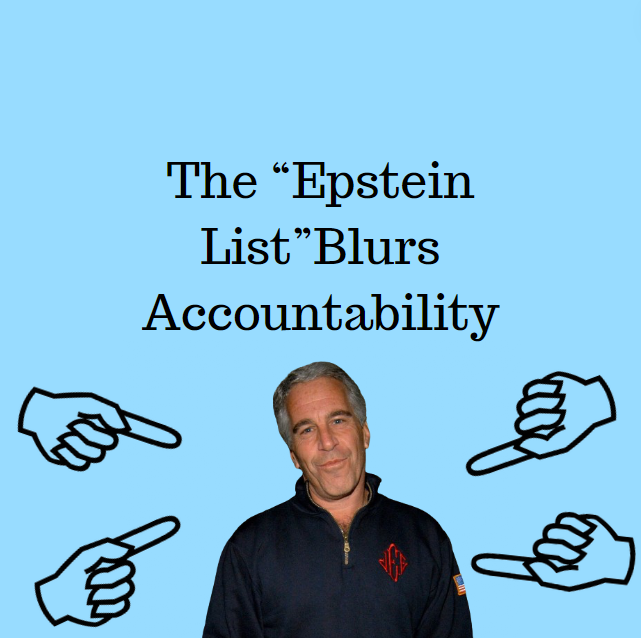We love to jump to conclusions. When the facts all seem to line up, we always point a finger at whoever they seem to line up against—even when what seems right simply isn’t. And this obsession with accountability has become most apparent in light of the recently revealed government documents outlining the associates of deceased millionaire and notorious sex offender Jeffrey Epstein. With Epstein’s reputation preceding him, seemingly everyone has begun to question the sanctity of those on the list as well and jumped to the conclusion that countless celebrities visited his private island where he was trafficking minors for sexual acts and either condoned or participated in it as well.
For people like actors Leonardo DiCaprio and Bruce Willis, not even a celebrated career has been enough to stop the tidal wave of backlash from people accusing them of doing things that Epstein himself was involved in, so much so that Twitter has had to clarify on any posts made about people on the List that they are not suspects. And despite the importance of accountability, it is cases like these that make us at the Wolfpacket believe that information like the Epstein List shouldn’t be released when they far too often allow fingers to be pointed at those who don’t deserve it.
Let’s get this out of the way first: the so-called Epstein List was not a list of people who visited Epstein’s private island. In reality, they were a list of redacted government documents, police reports, and emails concerning people associated with Epstein’s life. So the proceeding names in those documents may have known Epstein personally, but it is wrong to accuse and attack them online and in person when it is impossible to be certain that they participated in or knew of his crimes when the parameters about what the documents concerned were too general.Some of these individuals had been cleared of any wrongdoing before the list came out; attorney Alan Dershowitz, who would otherwise seem like a prime target of public backlash with his name appearing in the document 130 times, had a lawsuit against him from victim Virginia Giuffre dropped in November of 2022. Giuffre dropped her claim that Epstein had trafficked her to Dershowitz for sexual purposes, claiming that her trauma unfairly influenced her accusation.
But even though people like Dershowitz have had their names cleared legally, their legacies forever have a personal stain. Take the case of renowned and deceased astrophysicist Stephen Hawking, whose name appeared on the documents. Despite the fact that Epstein only visited Epstein’s private island as a rendezvous to a science conference in 2006, never had any proper accusations leveraged against him before his death, and had cerebral palsy which made it practically impossible for him to move his limbs, his name being on the list made it much more plausible that a fabricated image of the Epstein documents revealing Hawking’s vulgar “proclivities” was real. The image itself went viral as countless people went on social media to joke or even seriously report on the subject of a man with cerebral palsy being attracted to what the falsified excerpt describes, certainly tarnishing Hawking’s legacy for years to come. Even if the image were known to be fake, people from now on will never carry the same level of respect for one of the greatest minds in the field of astrophysics because of how the Epstein List facilitated our ability to blame anyone for anything.
The whole situation and other ones just like it are emblematic of how these kinds of opportunities facilitate the fabrication of accusations. Countless people believe that individuals like Stephen Hawking were abhorrent individuals for what they supposedly did, and suddenly a simple online joke becomes the trusted source for that argument. Even though we naturally tend to derive meaning in the most ludicrous things, it is our responsibility to look past it and wield accountability as a necessary tool that demands certainty of a person’s guiltiness. And if we cannot do that, perhaps this kind of information shouldn’t be accessible. Even if the Epstein List allows us to rightfully attack wrongdoers down the line, the collateral damage of uselessly tarnishing years of an innocent celebrity’s celebrated legacy is too much to justify a potential good.
Until our love of jumping to conclusions stops becoming the basis for unjust accusations and until we start separating clarifications and fabrications, things like the Epstein List shouldn’t be available for the public to see. That’s one conclusion we should all reach.












